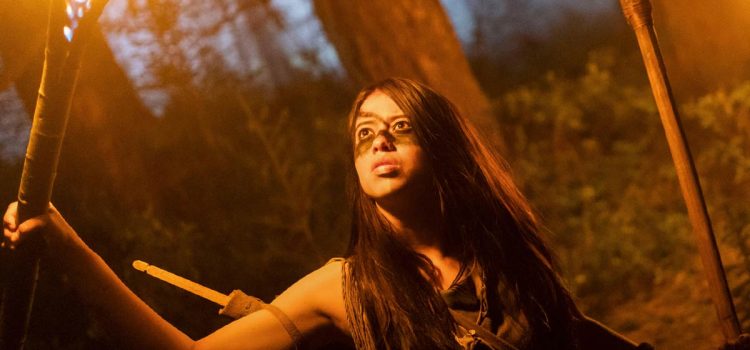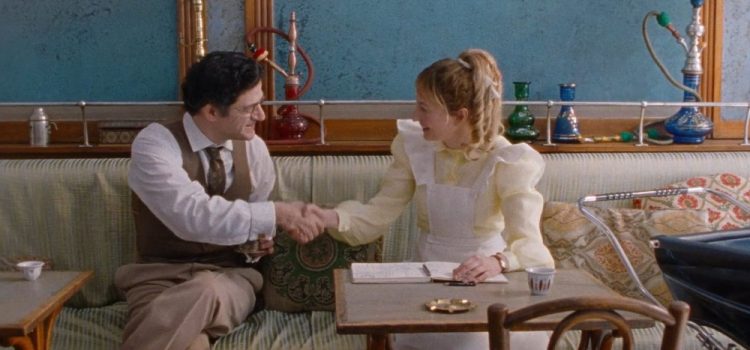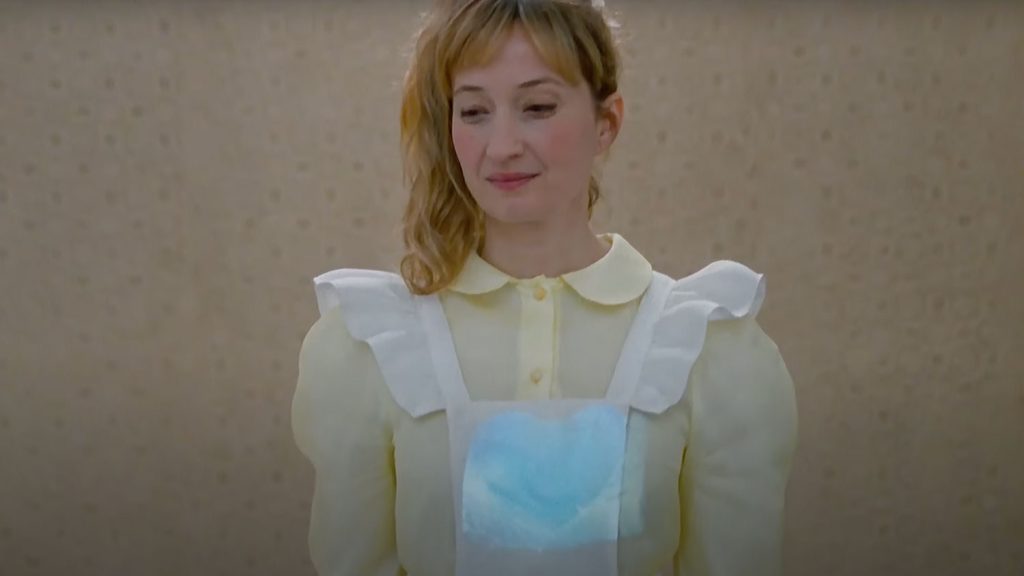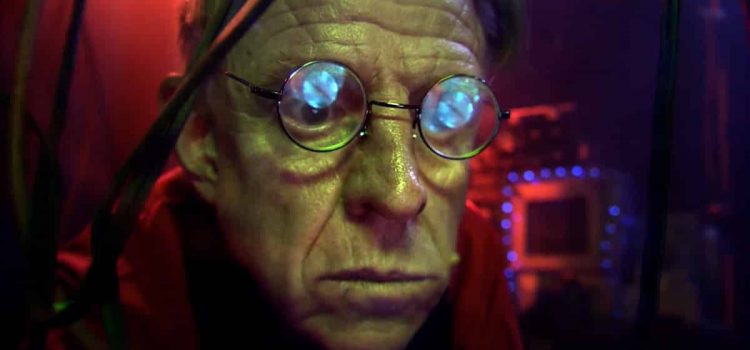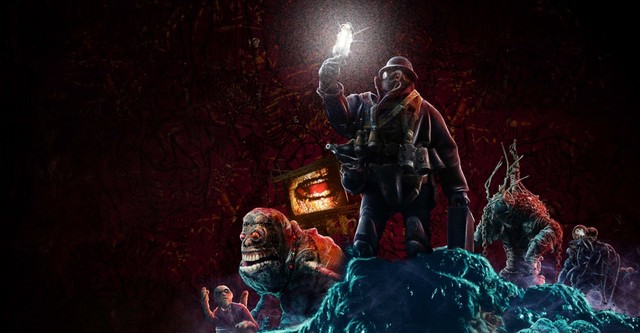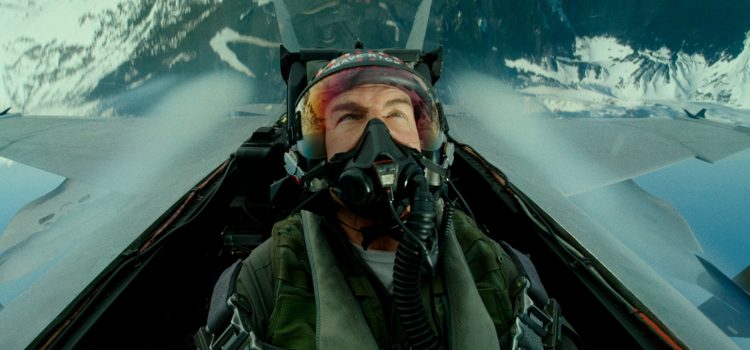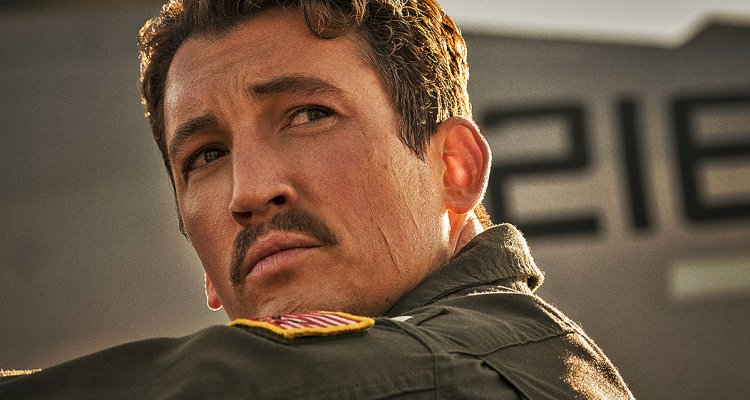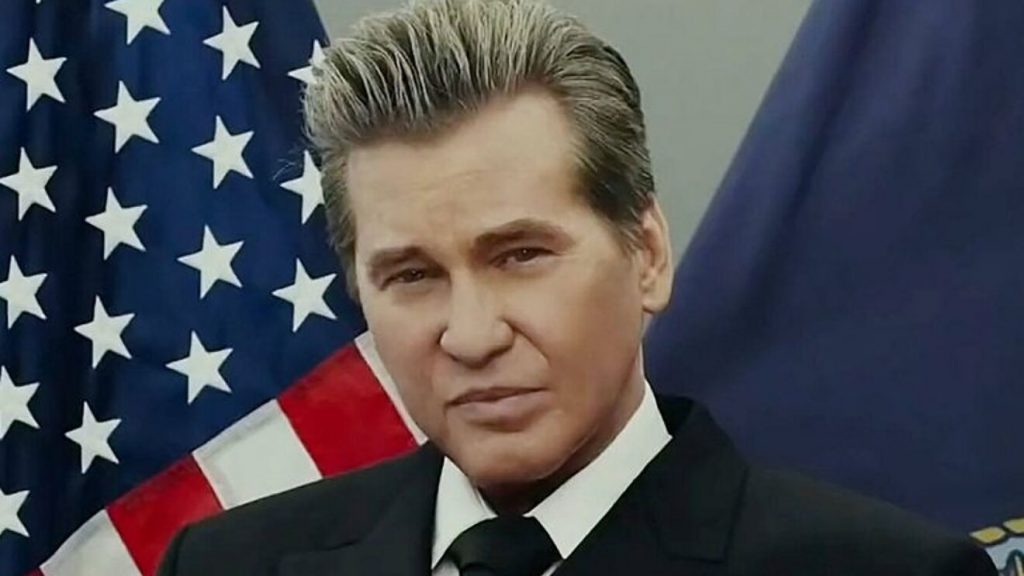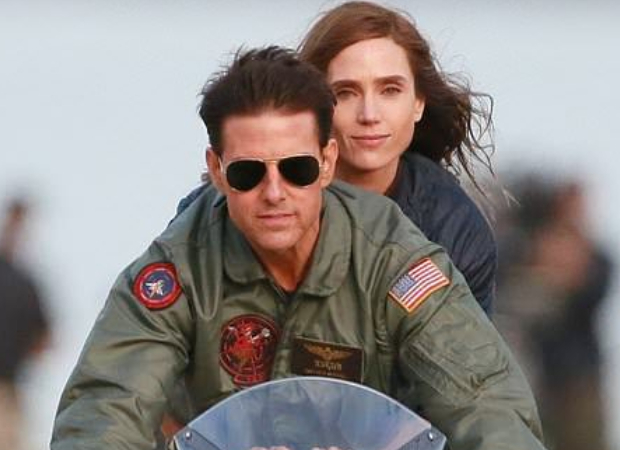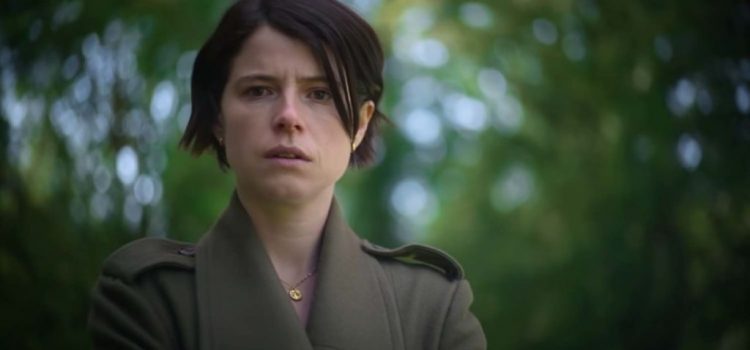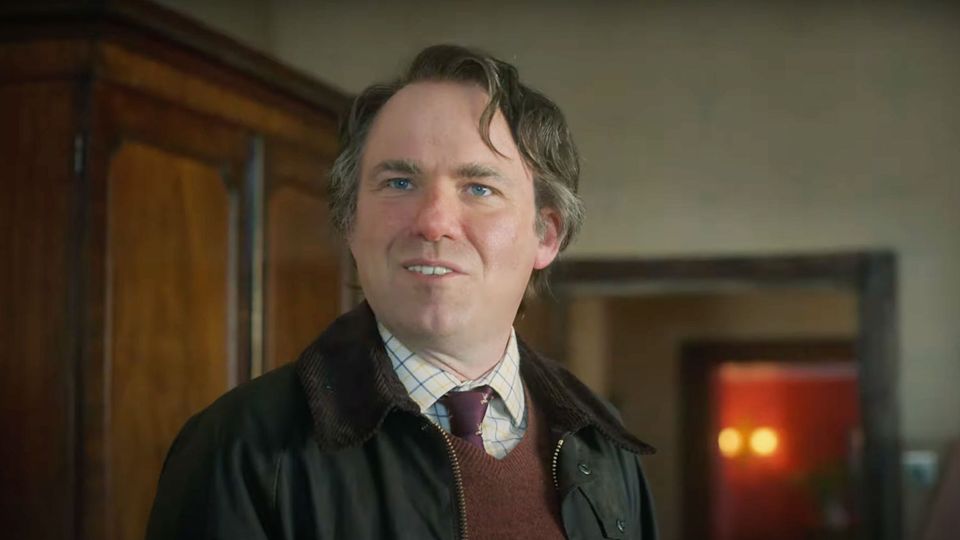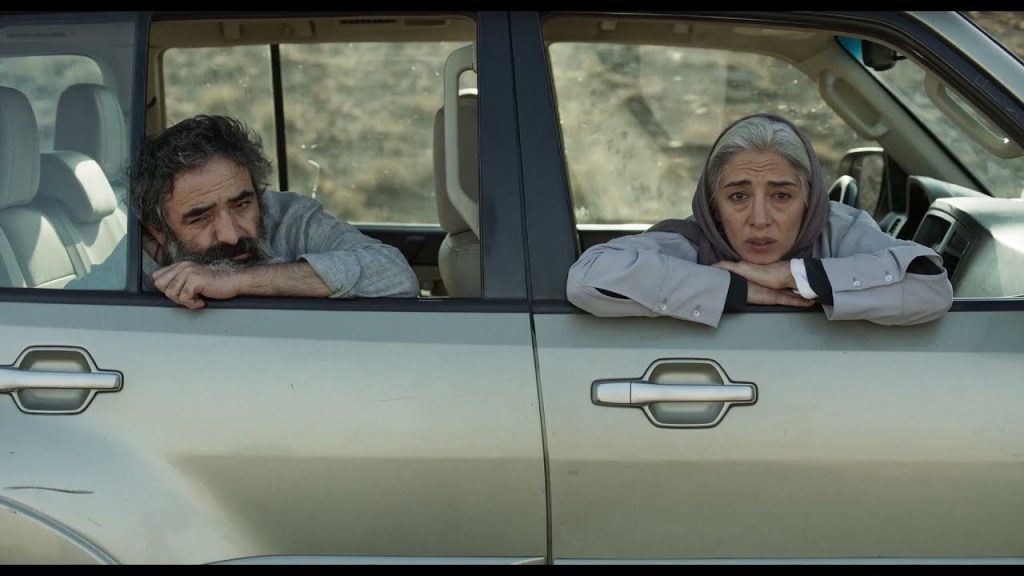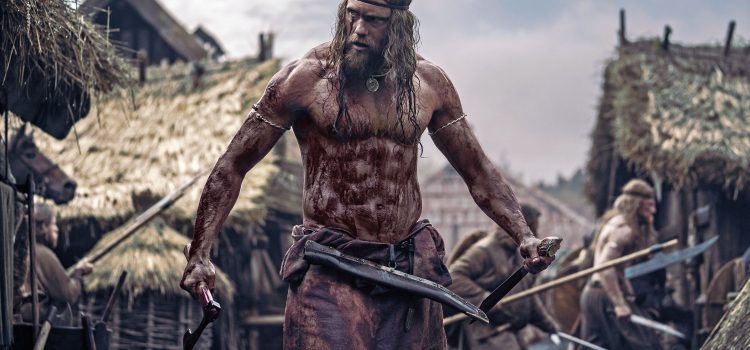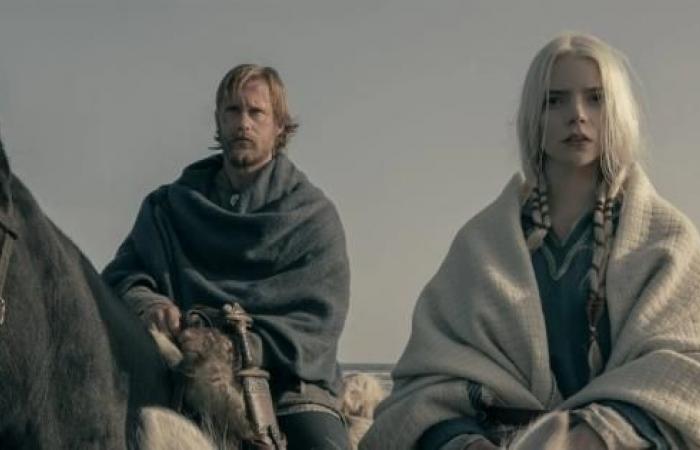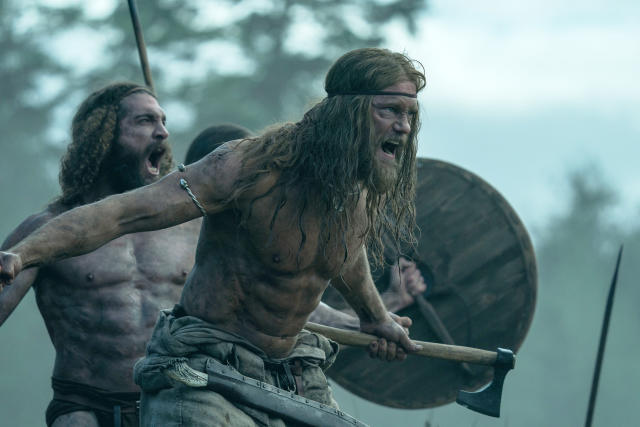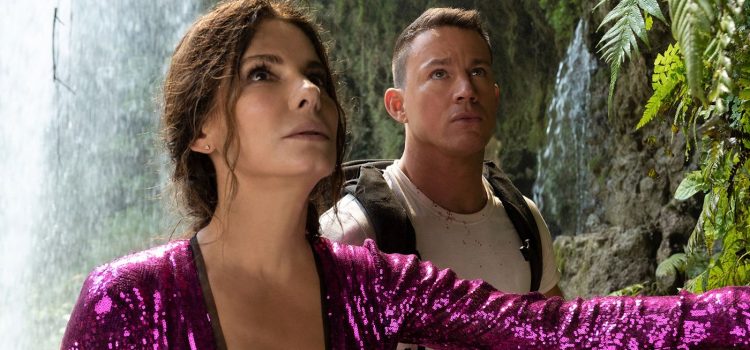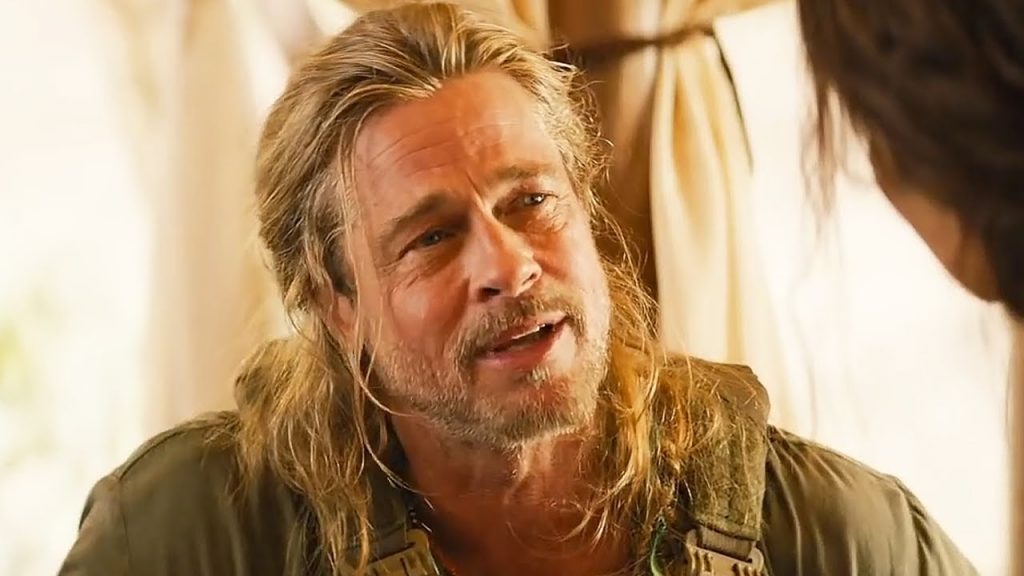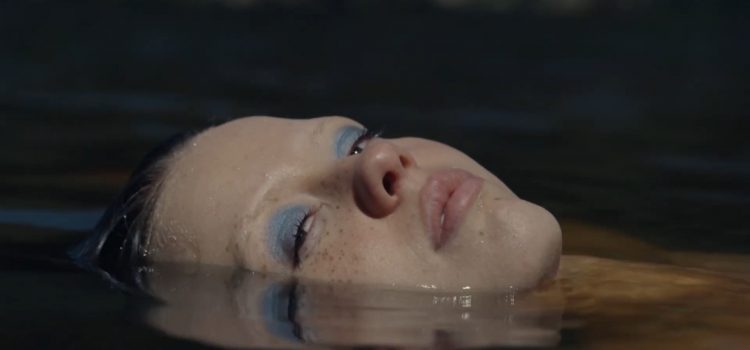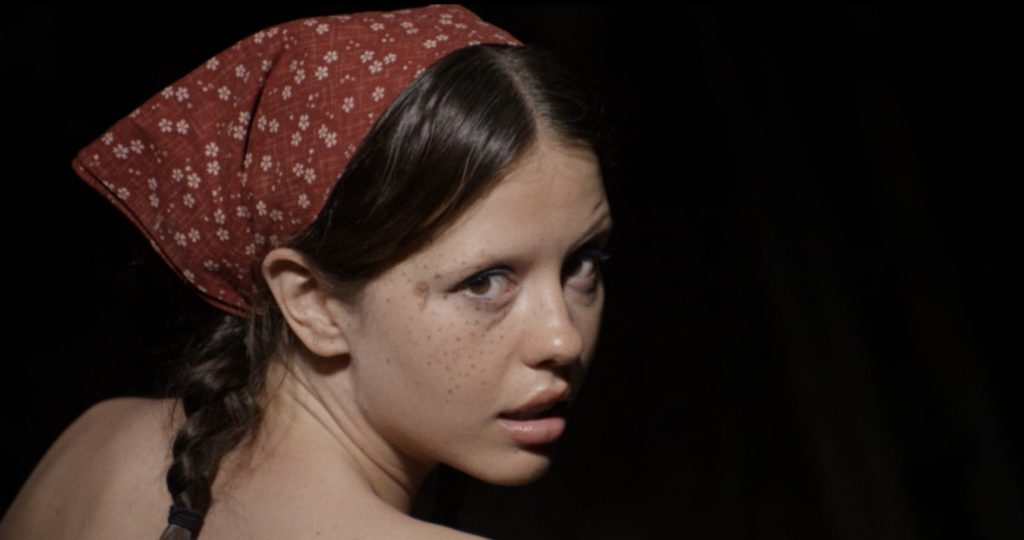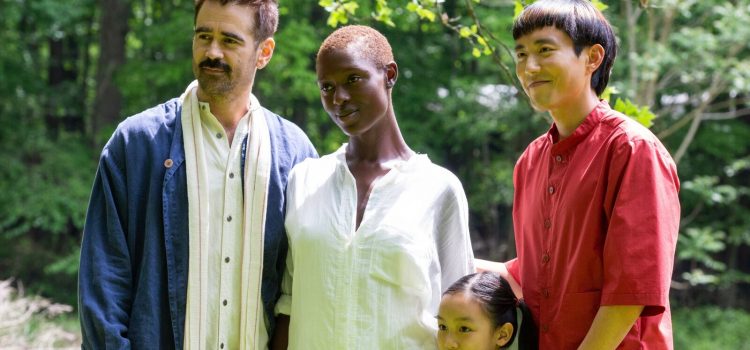By Alex McPherson
Director Dan Trachtenberg’s “Prey” is a lean, primal, nerve-wracking, and vividly shot underdog story smeared in glistening blood, featuring an expert performance from Amber Midthunder.
Trachtenberg’s film, unfolding prior to the events of 1987’s classic “Predator,” takes place 300 years ago in the Great Plains, focusing on Naru (Midthunder), a member of the Comanche Nation and warrior-in-training who is determined to prove herself. She’s frequently underestimated by men in her tribe, including by her brother, a skilled hunter named Taabe (Dakota Beavers). One day, however, Naru spots a bizarre object in the sky: a spaceship that just happens to transport the Predator (Dane DiLiegro) on its first visit to planet Earth. Believing this to be a divine sign to complete a warrior rite of passage, Naru insists on joining a team with her brother to kill a mountain lion that’s slain one of their tribesmen.
Before long, however, Naru is certain that something else is afoot. And she’d be correct. A formidable presence, complete with sharp tusks, chiseled abs, and numerous sci-fi murder contraptions, is able to brutalize any creature with ease, often cloaked in invisibility and emitting ominous click-clacking sounds that blend in amid the hissing wind and creaking branches. Continuing to be doubted, Naru and her trusty canine companion, Sarii (a true legend), venture out into the wilderness to protect her community and realize her potential that’s long been repressed by tradition. Battling the elements, colonizers, and the iconic spine-extractor itself, she must use her ingenuity and perseverance to survive, as the hunter becomes the hunted.
While “Prey” has plot beats that could have used more time to breathe, Trachtenberg has crafted a hardcore adventure tale that conveys a grand sense of scale with a protagonist who’s easy to root for.
Indeed, it’s unfortunate that “Prey” isn’t releasing theatrically — this film definitely deserves the big screen. Jeff Cutter’s cinematography is utterly spectacular at times, pulling back the camera to showcase vast rolling hills and gushing rivers bordered by dense forests untouched by technology, as Naru and Sarii bravely journey onwards, fending for themselves in an environment both liberating and fearsome. Complemented by Sarah Schachner’s pounding, percussive score, we feel like we’re on an epic adventure, the specter of death ever-present.
The film’s expansive setting isn’t just used as eye candy, though, as “Prey” calls back to a more classical form of storytelling, where dialogue is largely minimal, and Naru’s battles with Mother Nature and the Predator take center stage. Like her, viewers stay in-the-moment, which aids immersion but also limits how much we learn about Naru as a person. Thanks to Midthunder’s commanding, star-making performance, we see her will to live through her fierce gaze and body language alone, but our emotional attachment to both her and Taabe is limited due to the film’s uneven pacing, especially in the latter half. This isn’t helped by dialogue that occasionally leans clumsily blunt when subtlety could have added more texture to characters’ motivations.
That’s not to say the action isn’t spectacular, though. From barely escaping quicksand with her makeshift tomahawk-boomerang, to a close encounter with a bear, and going toe-to-toe with the Predator itself, “Prey” delivers set piece after set piece with aplomb, clearly framing the carnage to maximize suspense, bloodletting, and skin-of-your-teeth victories. One sequence late in the film within a burnt forest drenched in fog is pure cinematic bliss — the Predator vanquishing foes with cutthroat brutality, seemingly self-aware of its badassery, to both menacing and comedic effect.
Of course, the Predator itself delivers the grisly entertainment any reasonable viewer expects, with a few new gadgets thrown in that I won’t spoil. Although the creature’s fear factor is lessened due to its appearances early on — in several scenes showing the natural order derailed — the juxtaposition between its high-tech weaponry and the Comanche Nation’s comparatively low-tech, but nonetheless lethal tactics emphasize the fact that pure brawn doesn’t guarantee success. Rather, Naru’s ingenuity, upending of expectations, and skillset forged through her tribe’s teachings and personal experiences render the film a satisfying story of empowerment and cultural representation, without talking down to viewers.
Slightly ham-strung by its economical approach to narrative, “Prey” still thrills with beautiful cinematography, harrowing scenarios, and a memorable performance from Midthunder that places it right alongside the original. It’s high concept sci-fi that remains top of the food chain.
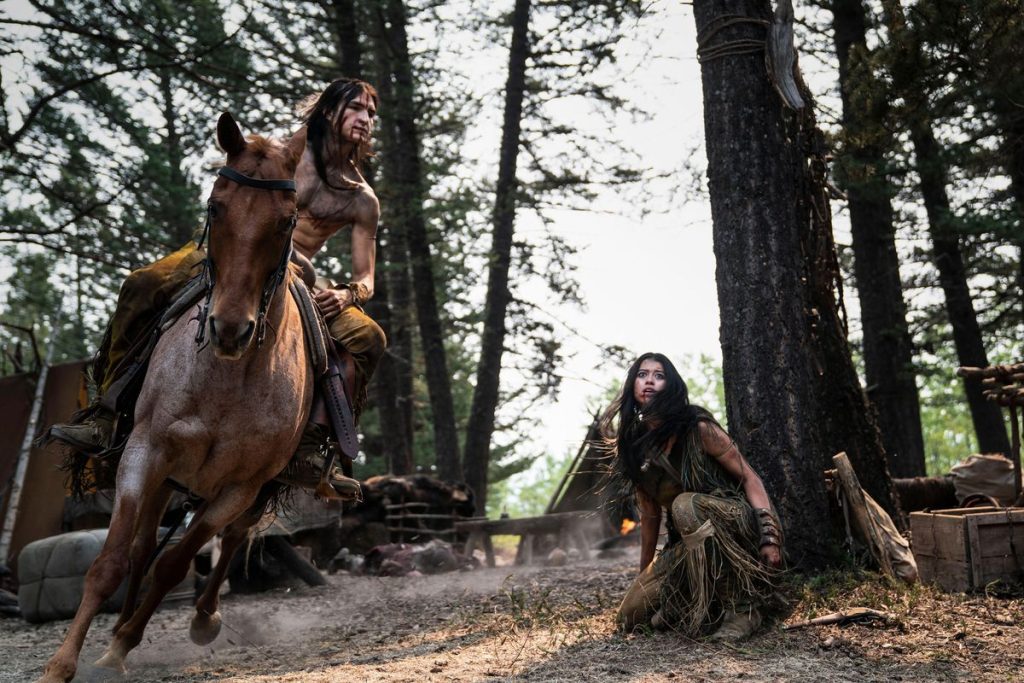
“Prey” is a 2022 action-drama directed by Dan Trachtenberg and stars Amber Midthunder, Dakota Beavers and Dane DiLiegro. It is rated Rated R for strong bloody violence and runs 1 hour, 39 minutes. It began streaming on Hulu on Aug. 5. Alex’s Grade: B+
Alex McPherson is an unabashed pop culture nerd and a member of the St. Louis Film Critics Association.

